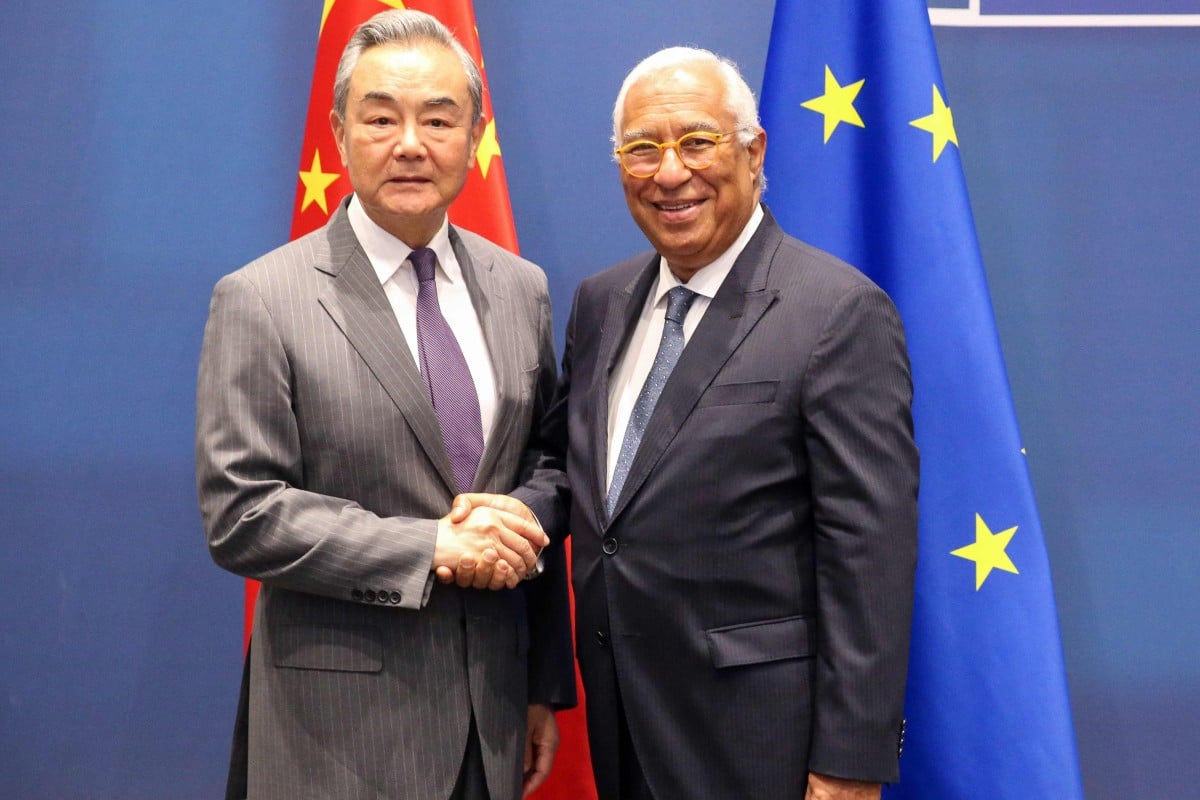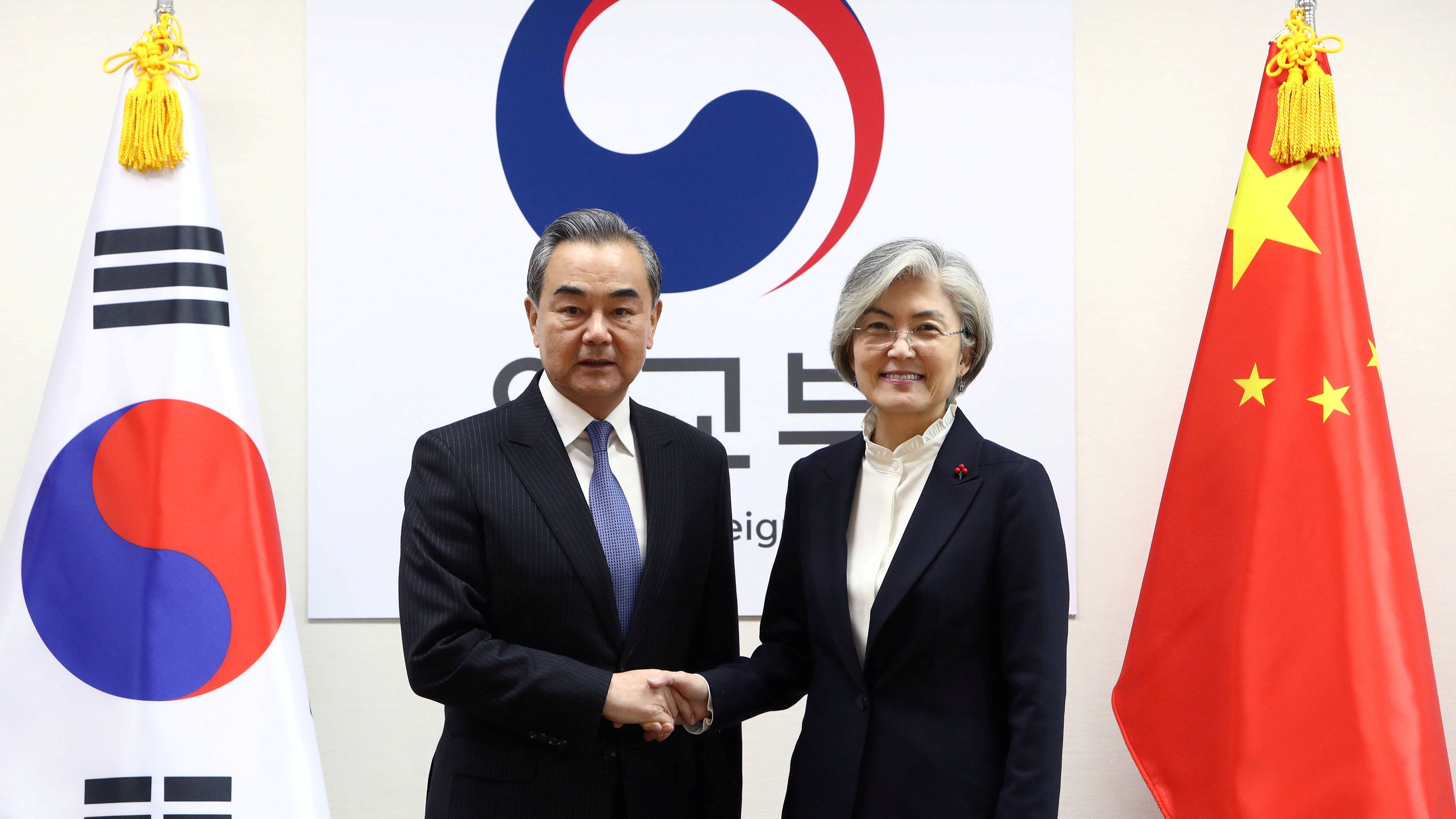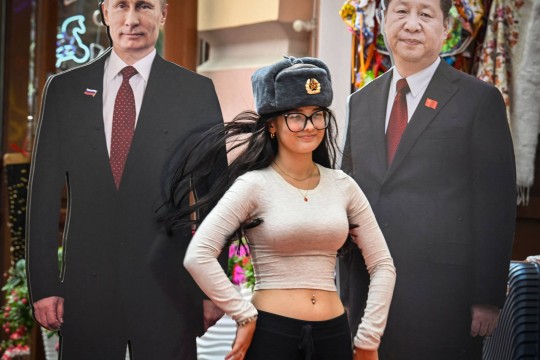Wang Yi tells top EU officials in Brussels to unite against ‘unilateralism and bullying’

Remarks come as Chinese foreign minister and European leaders discuss agenda for summit in Beijing and Hefei on July 24 and 25
EU stuck in Chinese finger trap as top Beijing official lands in Brussels

Chinese Foreign Minister Wang Yi will visit Brussels, Berlin and Paris this week ahead of a crucial EU-China summit in Beijing later this month. In Brussels on Wednesday, Yi is due to meet the EU's top diplomat Kaja Kallas and European Council President António Costa.
But the road to improved trade relations is paved with active disputes over electric vehicles, pork, brandy, dairy products, and other sensitive sectors.
Brussels and Beijing should become “reliable” and “mutually beneficial partners” to safeguard multilateralism and the global free trade system, Wang said arriving in Belgium on Tuesday, according to a statement by the Chinese foreign ministry.
China is not our adversary, but on security our relationship is under increasing strain," Kallas told reporters. "Chinese companies are Moscow’s lifeline to sustain its war against Ukraine, Beijing carries out cyber-attacks, interferes with our democracies, and trades unfairly – these actions harm European security and jobs."
"I’ll be clear that enabling war in Europe while seeking closer ties with Europe is a contradiction Beijing must address," she added.
Europe, however, has been stuck in an awkward bind since Donald Trump upended that global trading order earlier this year.
It has also repeatedly toyed with the idea of aligning its China policy with the US to avoid some of Trump’s tariffs – most recently at a G7 summit which heralded tough language on Beijing. Just as Yi meets Kallas, the EU's trade chief Maroš Šefčovič will arrive in Washington to lead talks with the US.
“It is not the case that just because we have these tariff talks with the US, things are easier with the Chinese; it puts us in a tighter spot with China,” a senior EU official said.
“What we need is for China not to look at the EU through the lense of the US,” they added.
Von der Leyen's hawkish resurgence
Over the past few months, the European Commission has been wavering on just how tough its stance on Beijing should be – a wobbly position that has left businesses scratching their heads.EU leaders last week also conspicuously avoided mentioning China in their summit conclusions, despite efforts by some countries to single out Beijing’s continued military support for Russia’s war machine alongside Belarus, Iran and North Korea. Germany, ever wary of alienating China, reportedly led the opposition, according to two EU diplomats.
July's EU-China summit, originally due to take place in Brussels, has quietly been shifted to Beijing – giving way to Chinese pressure, according to a source familiar with the preparations.
Von der Leyen’s recent hawkish rhetoric has been interpreted in Brussels as a signal to Washington that Europe is not about to leap into China’s embrace, even as transatlantic trade tensions simmer.
For China, "there has been a waiting game to see where things end up and play out before showing cards in negotiations," the senior EU official said.
But they played down von der Leyen's shift in tone, adding that "leaving cosmetics aside," Europe's "arguments have remained the same."
However, even Roberta Metsola, president of the European Parliament – an institution that has sparred most fiercely with Beijing on human rights and other thorny issues – has reportedly sought to normalise ties.
After an exchange of letters with Metsola, China in April said it had lifted sanctions on five MEPs, initally imposed in 2021 in retaliation for Western measures over Beijing’s treatment of Uyghurs.
But again, the EU appears reluctant to over-interpret the move as a peace offering.
“We feel that there are still many remaining restrictions,” the senior EU official said.
UPDATE: Kallas' quotes were added to the article.




No comments:
Post a Comment